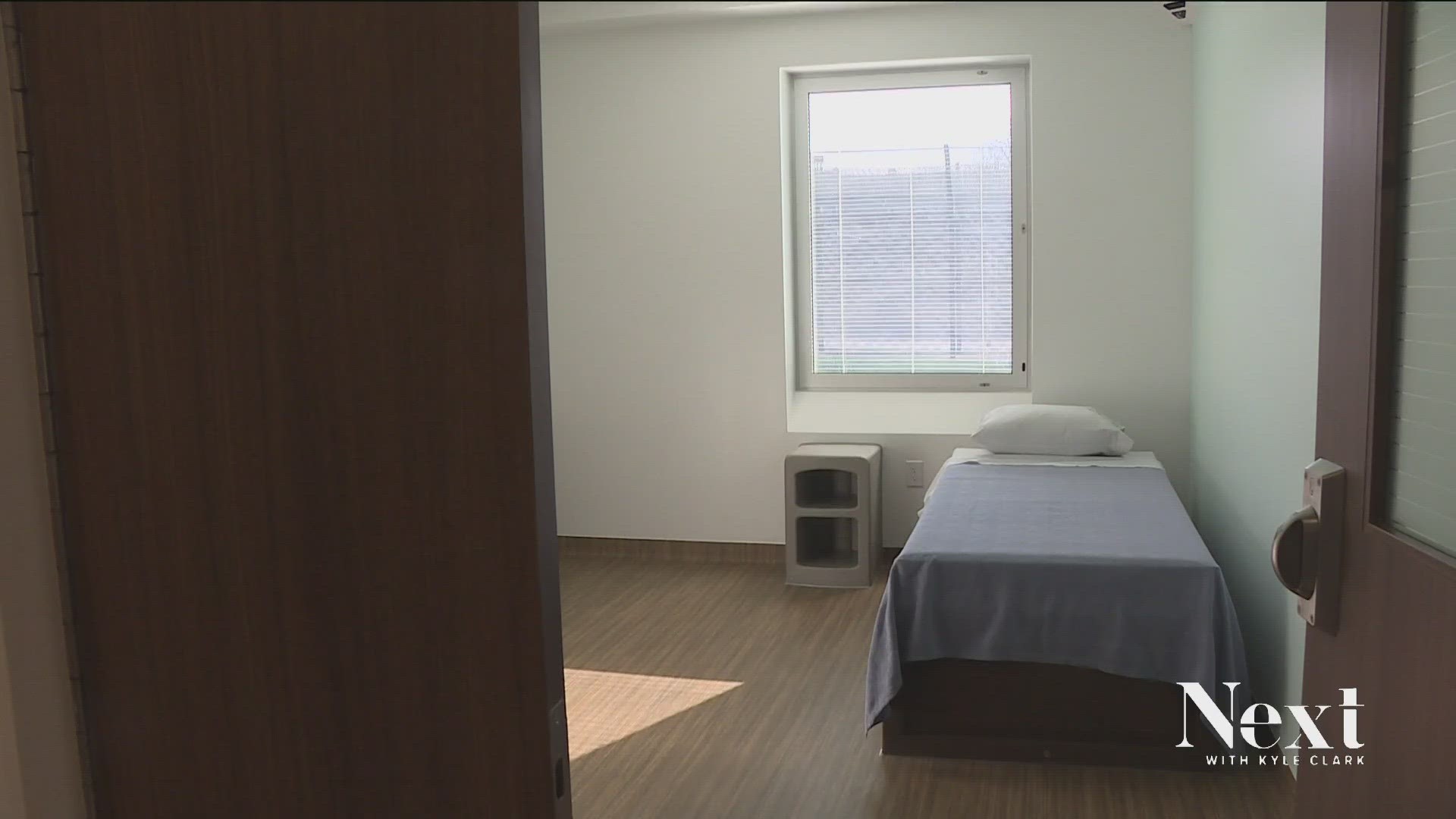DENVER — Colorado pays millions in fines while hundreds of people sit in jail waiting for mental health treatment, but now the money from that backlog could be part of the solution.
Before someone with mental health problems can stand trial, they must be found competent to participate. The wait in Colorado to get that kind of help inside the state’s hospitals is long. It's so long that Colorado pays $12 million a year in fines after it was sued over the length of the backlog.
"Today, we have about 450 people waiting on that waitlist. They’re waiting for treatment in the hospital," Director of the state’s Office for Civil and Forensic Mental Health Leora Joseph said.
Joseph said some people are waiting up to 100 days in jail before they can start getting the treatment they need.
"We actually have empty beds in our state hospitals, but we don’t have the nursing staffing to take care of the patient," she said. "We can’t run a psychiatric hospital without a nurse. That is the issue that has caused this incredible waitlist and this problem."
Those $12 million in fines aren’t paid to the people who sued the state. Instead, Colorado is using the money in part to pilot new programs to help the people waiting.
The state is under a consent decree for their handling of the long backlog, which means the money paid in fines goes into a fund. From there, the state gets one vote on how to use it, the people who sued them get a vote, and the special masters assigned to the fund decide how it’s allocated.
"One of the ways that we are attacking this problem as a state is looking for small groups of populations that sit on our waitlist," Joseph said. "Targeting groups of people and finding ways to help and potentially divert them out of the criminal justice system."
Right now, the focus is on people with traumatic brain injuries.
Dr. Jennifer McMahon will lead a new program to try and find new ways to help people with brain injuries who are waiting in jail, where they aren’t getting any of the help they need. She’s the programs director at the University of Denver’s Forensic Institute for Research, Service and Training.
"That’s one of the things that we’re hoping to identify. How many folks waiting in the competency system do have a brain injury and are trying to navigate this process without the support that they need?" McMahon said. "They’re kind of stuck in the system and not being able to get that treatment that they need."
McMahon says at least 40% of the incarcerated population could have a brain injury. It helps no one when they just wait in jail for months on end not getting any treatment.
The state also has programs to help other targeted groups of people like a homelessness initiative, a veteran's initiative, and a program for dementia patients. The goal is to help specific groups find solutions to address mental health while they wait for a spot in the state hospital system.
"Imagine trying to do the same thing over and over again and expecting a different result," McMahon said. "We’re trying to figure out what the roadmap is to help divert that individual out of the system and back into society."
There's often talk about competency hearings a lot in high profile cases, like the suspects in the King Soopers shooting and Planned Parenthood attack. These cases happen all the time where people waiting to stand trial need competency evaluations. People charged with things like trespassing or menacing will sit in jail for months before they can get treatment. Those are the types of people that fill this long waitlist.
SUGGESTED VIDEOS: Next with Kyle Clark

